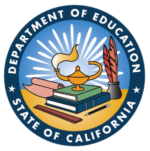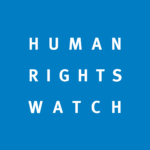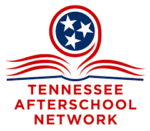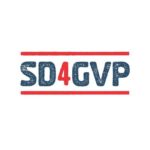Advocacy & Policy
- Advocacy/Policy (29)
- After School Administration (13)
- California Standards (39)
- Child Advocacy (37)
- Common Core (32)
- Education Rights and Reform (18)
- Juvenile Justice and Reform (22)
- National Standards (13)
- Youth Justice and Reform (17)
IDEAS Empowered by Youth® PBL Curricula is a pioneering approach to youth education, ideally tailored for today’s rapidly evolving, technologically-driven, and globally connected world. The Curriculum Fundamental Training prepares educators to present PBL curricula for students. By preparing educators to instill a culture of self-directed learning, it emphasizes crucial skills that today’s youth require: effective communication, collaborative learning, creativity, critical thinking, and emotional intelligence.
Climate change is an important learning and advocacy initiative for today’s youth. This free PBL curriculum resource is an engaging and interactive curriculum tailored for grades K-12, focusing on climate change education.
In this engaging and influential program, youth will:
Learn about global climate and environmental problems, including the plastic trash crisis, pollution and its effects, the shortage of fresh water, and other health threats.
Discover how these problems affect their communities.
Explore how their personal choices affect the environment.
Create a proposal to solve a problem related to climate change or the environment in their community.
Present the proposal to experts.
Present the final version of their proposal to their peers at a culminating event
April is nationally recognized as Child Abuse Prevention Month. Help prevent child abuse by downloading the contents below and sharing them with your children.
This Child Abuse Prevention Month Toolkit features printouts, worksheets for parent and child, videos, a Powerpoint presentation, hotlines to call, signage, and more.
April is National Child Abuse Prevention Month, a time to recognize the efforts of those who support children and strengthen families, and uncover the ways we can all play a part in keeping children safe and unharmed. We invite you to leverage the information, tools and resources we put together in this collection.
General information regarding the Expanded Learning Opportunities Program derived from Assembly Bill (AB) 130.
The Expanded Learning Opportunities Program (ELO-P) provides funding for afterschool and summer school enrichment programs for transitional kindergarten through sixth grade. Read about the Law, Funding Results, Program Plan, Audit Guide, Frequently Asked Questions & more resources.
This Human Rights Day Toolkit created by the Human Rights Watch Student Task Force is designed to empower students and teachers to educate their communities about Human Rights Day. Here you will find background information, basic human rights vocabulary, videos, activities, lesson plans, and event planning ideas.
The National Center for School Safety offers toolkits and guides that are detailed resources that provide you with the research, best practices, and frameworks you need to effectively administer school safety initiatives. These include creating comprehensive school safety plans, threat assessments, mental health, school climate, and more resources.
The National School Safety Center, state governors, and state school superintendents sponsor America’s Safe Schools Week annually in October.
School safety includes keeping campuses free of crime and violence, improving discipline, and increasing student attendance. Schools that are safe and free of violence, weapons, and drugs are necessary to ensure the well-being of all children and the quality of their education.
The most important strategy is to place school safety on the educational agenda. This includes developing a safe schools plan – an ongoing process that encompasses the development of district-wide crime prevention policies, in-service training, crisis preparation, interagency cooperation, and student/parent participation. These ideas are primary strategies to help inform, persuade, and integrate school safety and public opinion. These ideas will facilitate planning and the implementation of the remaining strategies.
The Tennessee Afterschool Network shares 15 wonderful ways you can celebrate Lights On Afterschool in your community.
Since 2000, Lights On Afterschool has been celebrated nationwide to call attention to the importance of afterschool programs for America’s children, families and communities.
Lights On Afterschool is a project of the Afterschool Alliance, a nonprofit organization dedicated to ensuring that all children have access to quality, affordable afterschool programs. Former Governor Arnold Schwarzenegger has served as Chair of Lights On Afterschool since 2001. Find free resources for Lights On Afterschool, including event planning themes and ideas, registration information, partner tools, art, printables & other materials for your programs, and more.
Kid Power is an interactive video platform for students in grades Kindergarten through 8th. Kid Power combines philanthropy and fun with mental health, social-emotional learning (SEL), child rights, and equity and access for all students.
SD4GVP, a 501(c)(4) nonprofit organization, is a coalition of concerned citizens united to end gun violence in America. This coalition includes many San Diego County organizations and individual citizens, just like you and me, who are stepping up to change our laws and prevent gun violence once and for all, through advocacy and education.






